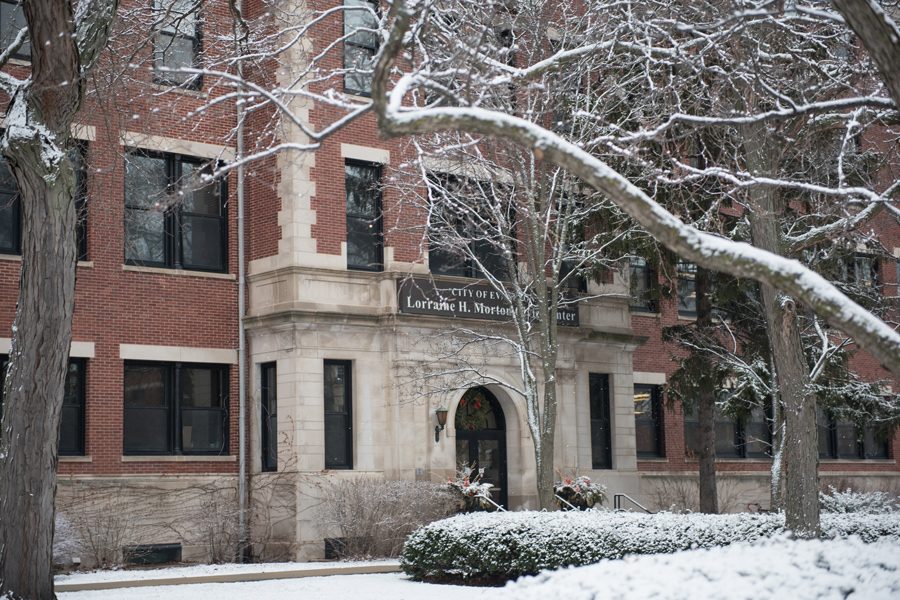Evanston residents respond to effects of Republican tax bill
Katie Pach/Daily Senior Staffer
Lorraine H. Morton Civic Center, 2100 Ridge Ave. Nearly 4,000 Evanston residents prepaid their property taxes in hopes of delaying the effects of the Tax Cuts and Jobs Act.
January 24, 2018
After taxpayers rushed to prepay property taxes after the Republican tax bill was passed in December, Cook County announced it is removing fees for online tax payments.
The initiative is a “change designed to boost the growing number of taxpayers who make electronic payments,” according to a news release from the office of the Cook County Treasurer, Maria Pappas. The removal of the $1 fee, which taxpayers were previously required to pay, will make payments more “convenient,” the release said.
The move comes after nearly 4,000 Evanston residents prepaid their property taxes in hopes of delaying the effects of the Tax Cuts and Jobs Act, which capped the State and Local Tax deduction at $10,000. The cap on the deduction — which exempts income paid on state and local taxes from federal taxes — will predominantly impact Americans in high-tax jurisdictions like Evanston, where taxpayers were previously allowed an unlimited deduction.
The tax overhaul was advertised by Republicans as a relief for the middle class, with President Donald Trump calling it a “gift” to the middle class. But many of the tax cuts in the new law are offset by the elimination of some current provisions.
Tina Foster, a 5th Ward resident, said though the state and local deductions limit won’t affect her immediately, she expects it will in the future, saying she is worried that new developments may increase Evanston property values. She said she opposes developers’ efforts to build more high-rise buildings and turn the “quaint little college town” into “Little Chicago.”
Greg DeStefano, a real estate businessman, said the deduction limits would likely increase his tax bill because he typically goes over $10,000. The Evanston resident added that provisions meant to benefit the average American don’t “quite offset” the elimination of previous benefits.
The standard deduction will nearly double to $12,000 for individuals and $24,000 for married couples filing jointly. For those who itemize, however, personal exemptions will be eliminated.
Additionally, income limits for the child tax credit — doubled under the new law — will increase, meaning more Americans will benefit from the credit than before.
Evanston resident Liz Arthur said with a 2-year-old child, she’ll benefit from that increase. But the limit on state and local tax deductions, she said, “dissuades” her from making the transition to become a homeowner.
“It’s a factor when thinking about buying a house,” Arthur said. “Somewhere else, it wouldn’t make a difference, but here it does.”
As Evanston property values continue to rise, more residents will likely reach the $10,000 limit, and development efforts throughout the city may also contribute to the rise in property values.
But DeStefano said he welcomed the proposed development because tax revenue will likely increase, allowing city and county officials to potentially decrease tax rates. Affordable housing requirements, he added, “complicate” that possibility and should be “relaxed.”
Still, many low-income Evanston residents who don’t reach the $10,000 limit will likely benefit from individual tax cuts, at least initially before the provisions expire in 2025.
While many residents are uncertain how the new law will impact their taxes, many individuals — including Foster — are looking forward to the tax breaks.
“For myself, it’s something very much needed, being a single parent with a child in college,” Foster said. “I need the tax breaks, and I need to be able to have as many tax deductions so we can afford to live.”
Email: aperez@u.northwestern.edu
Twitter: @_perezalan_



